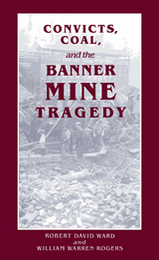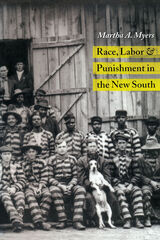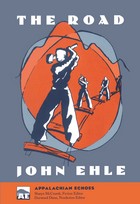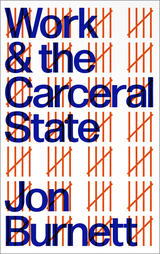
In the late 1870s, Jefferson County, Alabama, and the town of Elyton (near the future Birmingham) became the focus of a remarkable industrial and mining revolution. Together with the surrounding counties, the area was penetrated by railroads. Surprisingly large deposits of bituminous coal, limestone, and iron ore—the exact ingredients for the manufacture of iron and, later, steel—began to be exploited. Now, with transportation, modern extractive techniques, and capital, the region’s geological riches began yielding enormous profits.
This book is about the men who worked involuntarily in the Banner Coal Mine, owned by the Pratt Consolidated Coal Company. And it is about the repercussions and consequences that followed an explosion at the mine in the spring of 1911 that killed 128 convict miners.


"The Road is a strong novel by one of our most distinguished authors. Muscular, vivid, and pungent, it is broad in historical scope and profound in its human sympathies. We welcome its return with warm pleasure."—Fred Chappell
Originally published in 1967, The Road is epic historical fiction at its best. At the novel's center is Weatherby Wright, a railroad builder who launches an ambitious plan to link the highlands of western North Carolina with the East. As a native of the region, Wright knows what his railway will mean to the impoverished settlers. But to accomplish his grand undertaking he must conquer Sow Mountain, "a massive monolith of earth, rock, vegetation and water, an elaborate series of ridges which built on one another to the top."
Wright's struggle to construct the railroad—which requires tall trestles crossing deep ravines and seven tunnels blasted through shale and granite—proves to be much more than an engineering challenge. There is opposition from a child evangelist, who preaches that the railroad is the work of the devil, and there is a serious lack of funds, which forces Wright to use convict labor. How Wright confronts these challenges and how the mountain people respond to the changes the railroad brings to their lives make for powerfully compelling reading.
The Author: A native of Asheville, North Carolina, John Ehle has written seventeen novels and works of nonfiction. His books include The Land Breakers, The Journey of August King, The Winter People, and Trail of Tears: The Rise and Fall of the Cherokee Nation. Among the honors he has received are the Lillian Smith Prize and the Thomas Wolfe Memorial Award.

During 2019-20 in England and Wales, over 17 million hours of labor were carried out by more than 12,500 people incarcerated in prisons, while many people in immigration detention centers were also put to work. These people constitute a sub-waged, captive workforce who are frequently discarded by the state when done with.
Work and the Carceral State examines these forms of work as part of a broader exploration of the relationship between criminalization, criminal justice, immigration policy and labor, tracing their lineage through the histories of transportation and banishment, of houses of correction and prisons, to the contemporary production of work.
Criminalization has been used to enforce work and to discipline labor throughout the history of England and Wales. This book demands that we recognise the carceral state as operating at the frontier of labor control in the 21st century.
READERS
Browse our collection.
PUBLISHERS
See BiblioVault's publisher services.
STUDENT SERVICES
Files for college accessibility offices.
UChicago Accessibility Resources
home | accessibility | search | about | contact us
BiblioVault ® 2001 - 2024
The University of Chicago Press









